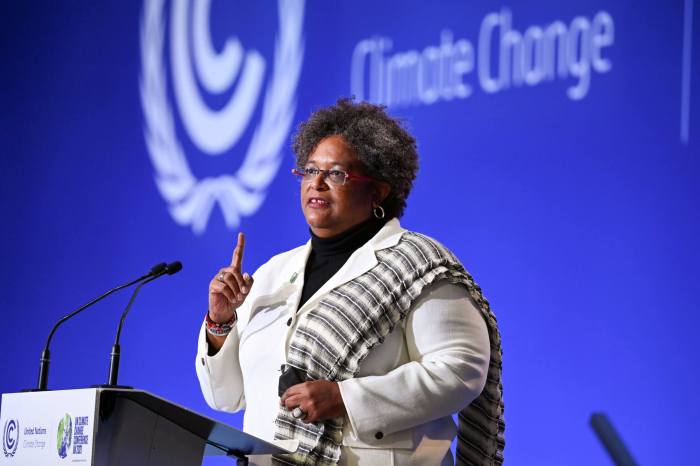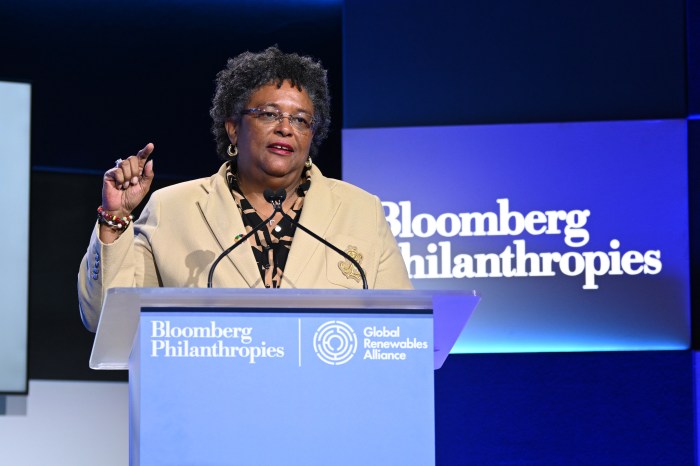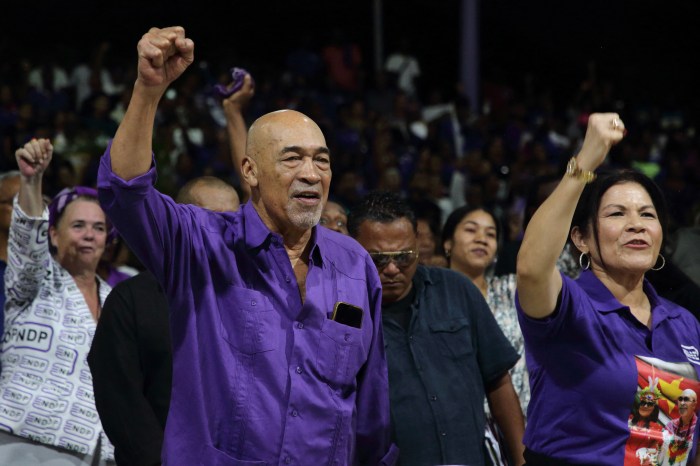Barbados
Caribbean Community (CARICOM) finance and planning ministers recently met in Barbados to advance several development initiatives geared towards enhancing the operation of the CARICOM Single Market and Economy (CSME).
It was the sixth special meeting of the Council of Finance and Planning (COFAP), which was convened under the chairmanship of Antigua and Barbuda’s Prime Minister and Minister of Finance, Gaston Browne.
CARICOM Secretary General Irwin La Rocque said the deliberations of the council touched on issues that affect the lives of the citizens of CARICOM.
He said the agenda addressed the important role of deposit insurance in enhancing the financial safety net, preserving financial stability mechanisms and the development of a regional integrated capital market.
CARICOM heads of government, at their July meeting in Jamaica, mandated the COFAP to finalize several instruments by their meetings next year, which will include an investment policy, an investment code, an incentives regime, an integrated capital market, beginning with model securities legislation.
Browne told participants that it was imperative for the region to pursue the efforts to advance the necessary legal measures to complete those initiatives, adding that it is taking too long to finalize the instruments which have been before the councils for many years.
Barbados Prime Minister Mia Mottley, in her address, underscored the importance of making progress on the matters before the council.
Dominica
The International Monetary Fund (IMF) recently concluded the 2018 Article IV consultation in Dominica.
On Sept. 18, 2017, category 5 Hurricane Maria hit Dominica while the country was still recovering from Tropical Storm Erika.
Maria was Dominica’s worst natural disaster with damage estimated at US$1.3 billion. Most economic sectors sustained significant damage and losses.
The IMF said in 2018, output is projected to decline by 14 percent and will take about five years to recover to pre-hurricane levels.
However, signs of recovery, particularly in construction and the public sector, have already started to emerge.
The IMF directors commended the authorities’ efforts in responding to the humanitarian crisis and significant devastation wrought by Hurricane Maria.
They stressed the need to implement cost effective fiscal policies and reforms to support recovery while containing expansion of public debt.
The IMF recommended containing current spending extraneous to recovery, and enhancing the efficiency of capital investment while protecting critical social and recovery spending.
The international lending institution agreed that enhancing growth prospects requires higher private sector participation and improving the business environment.
Grenada
The Grenada government has joined several CARICOM countries that have announced plans to ban the use of Styrofoam products.
The Keith Mitchell administration gave Sept. 1, 2018 as the deadline for a ban on the importation of the product as the first step in a phased approach to the eradication of Styrofoam and reduction of single-use plastics, in keeping with the Non-Biodegradable Waste Control Act, which was passed in Parliament this year.
It said the second phase will be a ban on the sale of Styrofoam, effective March, 1 2019, and by April 1, 2019, prohibiting the sale and offer for sale of food in or with these products.
Simon Stiel, minister of Climate Resilience and the Environment, said ultimately there should be “zero Styrofoam” across Grenada, Carriacou and Petite Martinique.
Stiel said that the ban is not being instituted arbitrarily, but in consultation with the importers and other stakeholders.
He said that over the period starting in September, the importation ban will prohibit more Styrofoam from being imported into the country, noting that discussions with importers about what products they have coming into the country, what they have on order and what they have in inventory.
The legislation also places a ban on single-use handled shopping bags, along with other single-use plastics, such as cutlery, plates and cups will come into effect on Feb. 1 next year.
Guyana
The Guyana Office for Investment (GO-Invest) says it has attracted more than Guy$12.5 million (US$60 million) in investments for the first half of this year.
GO-Invest Chief Executive Officer Owen Verwey said the investments would result in an estimated 430 new jobs in the economy.
He said the agency was established with the mandate to promote and facilitate foreign investments in the country.
Verwey said he remains confident that GO-Invest will meet its target of Guy$107 billion this year.
He said there were also interests in the industrial and commercial land investors who are looking at investment in Guyana, focusing on areas like Tuschen, Lethem and parts of the Berbice region.
Guyana is preparing to host its first ever business-to-business, Trade and Investment Exhibition (GuyTie) in October.
St. Kitts
The St. Kitts and Nevis Chamber of Industry and Commerce has spoken out about crime on the twin-island Federation, saying it has reached “a new and dangerous level with the recent murder of two police officers, which is viewed as a direct attack on the law by misguided young men with guns”.
In its first public statement on crime in three years, the private sector organization said crime has been a major threat to the peace, stability and security in St. Kitts and Nevis and to the economy.
The chamber said the gun and gang culture has grown alarmingly.
It said the society through the security forces must in the immediate term aggressively and powerful repel this attack and root out the perpetrators with the law force required.
“The murder rate has been consistently high and the number and daring manner of armed robberies of businesses is growing,” the Chamber said.
In an apparent response to the chamber’s statement, Prime Minister and Minister of National Security Dr. Timothy Harris noted that some EC$75 million have been allocated to fighting crime.
Trinidad
Trinidad and Tobago Prime Minister Dr. Keith Rowley said the government will examine the laws relating to the illegal use of marijuana.
He was addressing a recent PNM political meeting in West Trinidad when he made the comments.
Rowley said the jails are full of young people, largely young men, because they smoked a marijuana “joint” and the law in Trinidad and Tobago makes the smoking of a marijuana cigarette a criminal offense.
The prime minister noted that many of those charged are unable to raise bail, so they rot inside the jail, adding that is a matter of social justice that needs to be addressed.
In July, Rowley received a petition with 10,338 signatures advocating for the decriminalization of marijuana. He said he is in discussions with Attorney General Faris-al-Rawi to determine how to treat the problem.
— compiled by Azad Ali






















